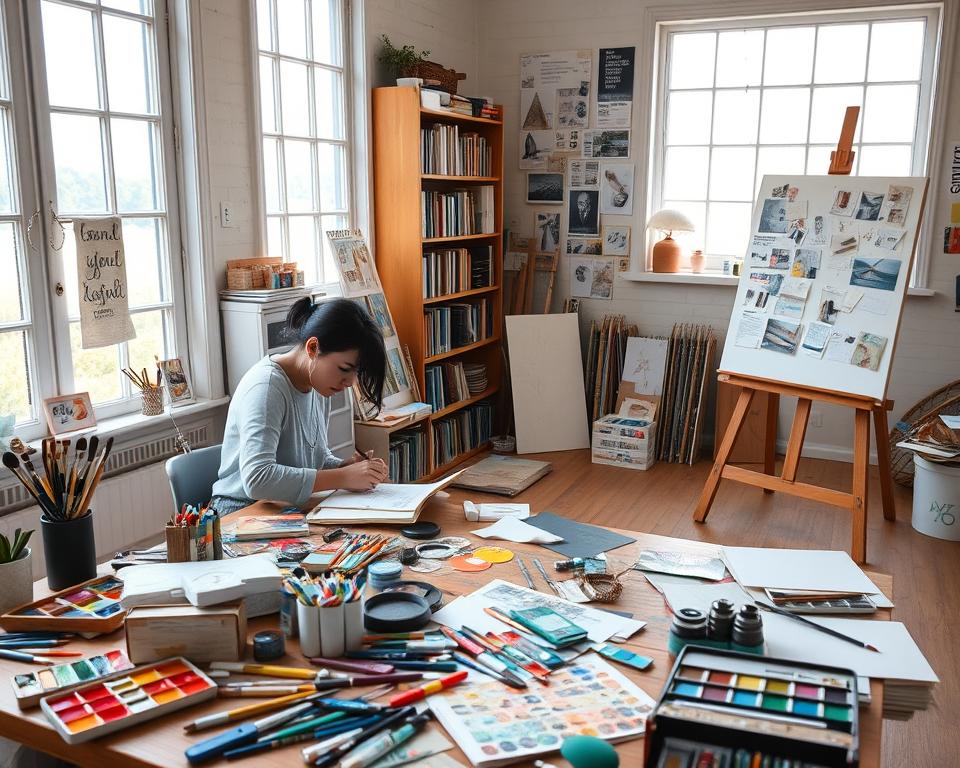Anúncios
Video editing is a fascinating skill that enables individuals to express their creativity and tell compelling stories. With the rise of digital content consumption, learning video editing has become more essential than ever. This surge in demand for video content spans various platforms, and understanding the basics of video editing sets the foundation for a rewarding journey. Whether for personal projects, social media, or entering the professional world, mastering video editing skills is increasingly important.
Many aspiring video editors often wonder where to begin learning this craft. Starting from scratch may initially seem overwhelming and daunting, but with the right approach and resources, anyone can master video editing. It’s essential to break down the process into manageable steps, making it less intimidating and more enjoyable. By adopting a structured approach, you can steadily build confidence.
First and foremost, selecting the right editing software is critical to your learning process. There are numerous options available, ranging from basic free programs to advanced software used by professionals. Popular beginner-friendly tools include iMovie, DaVinci Resolve, and HitFilm Express. These software applications offer intuitive interfaces and comprehensive features without overwhelming newcomers, making the initial learning curve more accessible.
Once you’ve chosen your software, it’s important to familiarize yourself with its interface. Spend some time exploring the different functions, tools, and panels available. Most editing programs contain tutorials that explain each feature in-depth. Understanding the layout and functionalities will substantially enhance your efficiency when navigating the software, making the entire editing process much smoother.
Next, consider watching online tutorials and courses dedicated to video editing. Platforms like YouTube, Skillshare, and Coursera provide a wealth of video editing tutorials suitable for beginners. These resources offer step-by-step guidance on various techniques and are typically presented by experienced editors. Taking notes and pausing to practice alongside the videos can significantly enhance your learning experience.
Hands-on practice is crucial to becoming proficient in video editing. After watching tutorials, try creating your simple projects that allow for exploration of various techniques. For example, begin by editing short clips together, experimenting with transitions, audio adjustments, and basic effects. This hands-on experience helps solidify the concepts you learn from tutorials while also igniting creativity.
Finding quality footage to edit is another valuable step in the learning process. You can access free stock footage websites like Pexels, Pixabay, or Unsplash to practice your skills. Using diverse types of videos enables you to understand how to edit various styles and improves your adaptability as an editor. The more footage you practice with, the more versatile and skilled you will become.
As you progress in your video editing journey, focus on understanding the fundamental principles of editing. Learn about the essential aspects of storytelling, pacing, and flow. In video editing, each cut and transition plays a significant role in conveying the narrative or emotion of the piece. Practice creating a seamless story using your clips by carefully selecting and arranging shots logically.
In addition to storytelling, mastering audio editing is a critical aspect of video production. Good video can be irrevocably harmed by poor audio quality, which is why learning how to adjust audio levels, add music, and incorporate sound effects is essential. Most editing software provides tools dedicated to audio manipulation, so familiarize yourself with these features to enhance the overall quality of your projects.
Color correction and grading are also vital aspects of video editing that can dramatically elevate your work. Understanding color theory and how to adjust colors will greatly affect the final product. Learn about contrast, brightness, saturation, and color balance, as these elements can significantly impact the mood and perception of your video. Experimenting with different settings will help you discover and refine your preferred editing style.
Networking with fellow editors can be incredibly beneficial on your learning journey. Joining online communities, forums, or social media groups dedicated to video editing provides valuable insights and support. Engaging with experienced editors allows you to ask questions, share your work, and receive constructive feedback. This sense of community can help motivate you and foster growth in your editing skills.
Creating a portfolio is essential for showcasing your skills as an editor. Start documenting all of your projects, regardless of their scale or complexity. A strong portfolio will highlight your best work and demonstrate your progress over time, proving invaluable for potential clients or collaborators. Share your portfolio on platforms such as Vimeo, YouTube, or even your personal website to reach a wider audience.
As you gain confidence and expertise in video editing, consider working on more complex projects to further challenge yourself. Tackle longer videos or experiment with different genres, such as documentaries, music videos, or short films. Each project will teach you something new and introduce unique editing concepts and techniques. Embrace the learning process; every challenge serves as an opportunity to improve.
Staying updated with current trends in video editing is essential. The industry is constantly evolving, with new tools and styles emerging regularly. Follow notable editors in the field, attend webinars, and subscribe to relevant blogs or podcasts to remain informed about the latest developments. Being aware of current trends will help keep your work relevant and engaging for your audience.
Experimentation is a key component of becoming a proficient video editor. Don’t be afraid to try new styles, effects, or techniques as you progress. Pushing your creative boundaries can lead to the discovery of your unique editing flair. Even if a particular technique doesn’t yield the results you anticipated, it’s a valuable learning opportunity that contributes to your growth as an artist.
Feedback plays a crucial role in developing your editing skills and honing your craft. Share your work with friends, family, or online forums to gather constructive criticism. Take critiques positively, as they offer invaluable insights that can guide your artistic growth. Actively seeking feedback demonstrates an openness to learning and improving, vital attributes for anyone in an artistic field.
Never underestimate the power of collaboration when it comes to film or video projects. Partnering with other creatives, such as filmmakers, cinematographers, or writers, can provide diverse perspectives and enhance your projects. Collaborating not only allows you to learn from others’ experiences but also helps you understand various viewpoints in the storytelling process, leading to a richer final product.
Consider setting specific goals for your video editing journey. These goals could range from mastering technical skills to completing particular projects within a certain timeframe. Having tangible objectives helps maintain your motivation and focus as you progress. Track your progress and celebrate small achievements along the way to sustain your enthusiasm for learning.
Feel free to explore more advanced editing techniques as your competence develops. Techniques like motion graphics, keyframing, and visually striking effects can add a professional touch to your videos. Online workshops, tutorials, and advanced courses can facilitate your learning of these intricate skills. Investing time in mastering complex techniques can differentiate you in the competitive world of video editing.
Always strive for improvement and growth, regardless of your current skill level. Video editing is an ongoing learning journey, filled with endless possibilities for creativity. Embrace challenges as opportunities to develop your unique style and technique. Each project and experience contributes to shaping your creative voice as an editor.
Finally, remember to enjoy the process of video editing. It should serve as a fulfilling creative outlet rather than a burdensome task. Keep your passion for storytelling and creativity alive by devoting time to personal projects that inspire and excite you. Allow yourself the freedom to explore and revel in the art of video editing, turning each editing session into a delightful experience.



